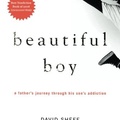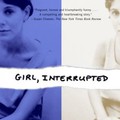Jennifer Egan: Emerald City
 Before Jennifer Egan started writing amazing, mind-blowing and hauntingly beautiful postmodern (or post-postmodern) novels, she also wrote books such as this short story collection, which isn't postmodern at all – but it's just as beautiful and heartbreaking as, for example, A Visit from the Goon Squad. Egan published 5 books so far; Emerald City was the third I read, and I start to think that she simply cannot write badly.
Before Jennifer Egan started writing amazing, mind-blowing and hauntingly beautiful postmodern (or post-postmodern) novels, she also wrote books such as this short story collection, which isn't postmodern at all – but it's just as beautiful and heartbreaking as, for example, A Visit from the Goon Squad. Egan published 5 books so far; Emerald City was the third I read, and I start to think that she simply cannot write badly.
Emerald City was Jennifer Egan's first published book, and it contains 11 short stories. They are all about great emotional upheavals or traumas, about a disappointment, or a major change (or the possibility of a major change), and through the course of events, the protagonists all realize a couple of major truths about their lives, and thanks to these revelations, they will probably be able to live differently after the story ends – or maybe they won't. The stories are about a unique moment in the protagonists' life when time stops for a minute, and the characters are free to decide whether they will travel the untrodden path from now on, or simply stay in the lukewarm comfort (or discomfort) of their current life. To be a little more specific, I give you a couple of examples.
One of the stories, Sacred Heart is about a teenage girl who falls madly in love with another girl in her class – a girl with dangerous, self-destructive habits and a dysfunctional family. The protagonist admires her classmate, turns her into a romantic idol in her imagination, and for months, she's greatly unsettled and unhappy because she feels that the average, safe, boring reality she inhabits is nothing compared to the – apparently – wild, intense, real reality of her classmate – until one day she finds out that the tragic-romantic heroine of her imagination is just another average teenager. Sure, this is a huge disappointment – but at the same time this is a break-away from a destructive, dangerous spell, and after the spell is broken, the protagonist will be able to carry on with her life again.
In another story, Puerto Vallarta we witness the disintegration of a seemingly happy family. (A disintegration which, from another perspective, is not a disintegration at all, but rather the meticulous deconstruction of family ties which were based on lies, and then a new start on different grounds.) Naturally, the disintegration/deconstruction doesn't come out of the blue, and before it comes, we learn about the (power) relations between the father, the mother and their teenage daughter, and we also get to know the secrets and emotions which tie or separate them. Then finally, during a family holiday in Puerto Vallarta there comes a moment when one of them has to choose between leaking a secret and by this, changing everything, or keeping silent and by this, choosing to go on with a make-believe life forever.
In most of the stories, the protagonists decide to act, to change everything – even though this is often a kind of „passive” change: finally giving up the fight, and accepting/acknowledging the fact that, for instance, they would never really fit into the group they would passionately like to belong to; or that their greatest dream will probably never come true, so it's time to look for another, more plausible dream. These realizations, of course, make the protagonists sad because they must relinquish something they've been clinging to desperately – but after accepting the truth, it finally becomes possible to live an honest life, without self-delusion.
Besides the all-permeating melancholy of change (or the lack of change), it's Jennifer Egan's outstanding ability to describe locale is the most remarkable feature which connects these stories. The stories are set in a variety of cities, countries and continents (Mexico, Spain, Bora Bora, Africa, New York City), and the characters usually come to these places from somewhere else – to live, to work, or to rest. Naturally, they often feel like a stranger in these strange lands – just the way they feel within the boundaries of their lives. And even though I've never been to any of these places, Jennifer Egan describes them so sensuously that I feel as if I intimately knew all the (inner and outer) spaces her characters inhabit.
So yes – these are enchanting, delicate, beautiful and elegantly written stories. They are full of emotions, but they never get sentimental. And they trust your imagination and empathy. I loved reading them.





